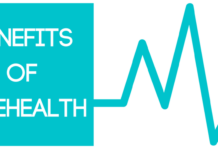Skin health is dependent on a plethora of internal and external factors that have all been found to suit their dermatological treatment. The complementary use of approaches encompassing nutrition, stress, and sleep management is now gaining popularity in dermatological practice. Evidence suggests that those involved in a certain lifestyle can act on skin conditions such as acne, eczema, and premature aging. Treating these factors can then pave the way for dermatologists and patients alike to achieve longer-lasting benefits for skin health. This article will discuss how nutrition, stress management, and sleep can all impart maintenance or improvement to skin health.
The Role of Nutrition in Skin Health
Nutrition is an important factor for skin functionality and appearance. An optimum diet consisting of vitamins, minerals, and antioxidants aids in repairing the skin, maintaining hydration levels, and acts as a protective agent against environmental stressors.
Essential Nutrients for Skin Health
- Vitamin C: A vital antioxidant that aids in collagen synthesis and provides protection against oxidative stress. Vitamin C implantation studies have reportedly improved skin brightness and reduced incidence of hyperpigmentation (Pullar, Carr, & Vissers, 2017).
- Vitamin E: Works in concert with vitamin C to protect the skin against UV-induced damage and inflammation (Zussman, Ahdout, & Kim, 2010).
- Omega-3 fatty acids: These essential fatty acids, which are derived from fish oils as well as from flaxseeds, are used in reducing inflammation and enhancing skin barrier function especially in disease states like eczema (Calder, 2016).
- Zinc: The mineral zinc promotes wound healing and immune function and decreases acne severity by modulation of sebum production (Dreno, 2013).
- Probiotics: The nascent research suggests a strong gut-skin connection where probiotics are helpful in maintaining the balance of the microbiome and might reduce inflammatory skin conditions such as acne and rosacea (Bowe & Logan, 2011).
Stress Management and Skin Health
Some of the skin disorders that have been witnessed to develop in individuals suffering chronic stress are acne, psoriasis, and eczema. The so-called “brain-skin axis” links the brain and skin. It demonstrates that how stress hormones like cortisol worsen inflammation and disturb skin homeostasis (Arck et al., 2010).
Effective Stress Management Techniques
- Meditation and Mindfulness – Buddha taught that being mindful can help one let go of past mistakes and embrace changes within oneself. Studies show that mindfulness-based stress reduction techniques can improve inflammatory skin conditions and are good for overall well-being (Kabat-Zinn, 2013).
- Exercise – Physical activity helps to control the hormones that cause stress; improve blood circulation, and have better oxygenation to the skin-all of which promote a healthy complexion. (Chekroud et al, 2018).
- Breathwork and Yoga-The latter reduce levels of cortisol and relieve inflammatory disorders like psoriasis (Boehncke & Schon, 2015).
The Impact of Sleep on Skin Health
Good quality sleep is vital for skin regeneration and barrier function and the presentation of overall appearance. During sleep, the body undergoes many repair processes, including collagen generation and cellular turnover.
Sleep Deprivation and Skin Consequences
- Accelerated Aging – Sleep deprivation is increased fine lines and uneven pigmentation, while elasticity will also decrease as described in their research (Oyetakin-White et al., 2015).
- Compromised Skin Barrier – Deprivation of sleep results in elevated transepidermal water loss (TEWL), resulting in a dehydrated and irritated skin (Peters et al., 2018).
- Increased Inflammation – Higher systemic levels of inflammation have been highly associated with sleep deprivation; these factors will worsen conditions such as acne and eczema (Irwin, 2019).
Optimizing Sleep for Skin Health
- Keeping Inconsistent Sleep – Going to bed and waking up at the same time helps maintain circadian rhythms and repair cycles on the skin.
- Include a Relaxing Bedtime Routine – Limiting exposure to screens, using calming essential oils, and doing relaxation techniques can all improve sleep well.
- Optimize Sleep Environment – Having a cooler, darker, and quieter bedroom will help one sleep more deeply and rejuvenate the skin.
Integrating Holistic Approaches in Dermatological Care
As lifestyle factors gain more and more recognition in their contribution to skin health, dermatologists now tend to incorporate holistic approaches in their management of patients.
Personalized Treatment Plans
Treatment with conventional dermatological modalities can be enhanced by incorporating personalized dietary advice, stress-reduction strategies, and sleep hygiene recommendations. A dermatology-nutrition-psychology collaboration can then deliver a truly holistic approach to skin health.
Future Directions
Current research keeps revealing possible links between lifestyle and dermatology. These nutraceutical advances, gut microbiome studies, and psychodermatology all pave the way for a much more integrative approach to skincare.
Conclusion
The new generation of dermatological care is all about a holistic and patient-friendly approach to achieving healthy skin through nutrition, stress management, and the optimization of sleep. As one realizes the connection that exists between lifestyle and skin conditions, a very sustainable approach can be achieved towards having healthy skin. The evolution of integrative research would witness those practices become established in patient care in dermatology, paying more attention to prevention and wellness over time.
References
- Arck, P. C., Slominski, A., Theoharides, T. C., Peters, E. M., & Paus, R. (2010). Neuroimmunology of stress: Skin takes center stage. Journal of Investigative Dermatology, 130(4), 895-903. https://doi.org/10.1038/jid.2010.10
- Boehncke, W. H., & Schön, M. P. (2015). Psoriasis. The Lancet, 386(9997), 983-994. https://doi.org/10.1016/S0140-6736(14)61909-7
- Bowe, W., & Logan, A. C. (2011). Acne vulgaris, probiotics and the gut-brain-skin axis: From anecdote to translational medicine. Beneficial Microbes, 2(2), 67-73. https://doi.org/10.3920/BM2011.0003
- Calder, P. C. (2016). Omega-3 polyunsaturated fatty acids and inflammatory processes: Nutrition or pharmacology? British Journal of Clinical Pharmacology, 75(3), 645-662. https://doi.org/10.1111/bcp.12067
- Chekroud, S. R., et al. (2018). Association between physical exercise and mental health in 1.2 million individuals. The Lancet Psychiatry, 5(9), 739-746. https://doi.org/10.1016/S2215-0366(18)30227-X
- Dreno, B. (2013). The role of zinc in the pathogenesis and treatment of acne. Dermatology, 226(2), 137-144. https://doi.org/10.1159/000348879
- Irwin, M. R. (2019). Sleep and inflammation: Partners in sickness and in health. Nature Reviews Immunology, 19(11), 702-715. https://doi.org/10.1038/s41577-019-0175-7










